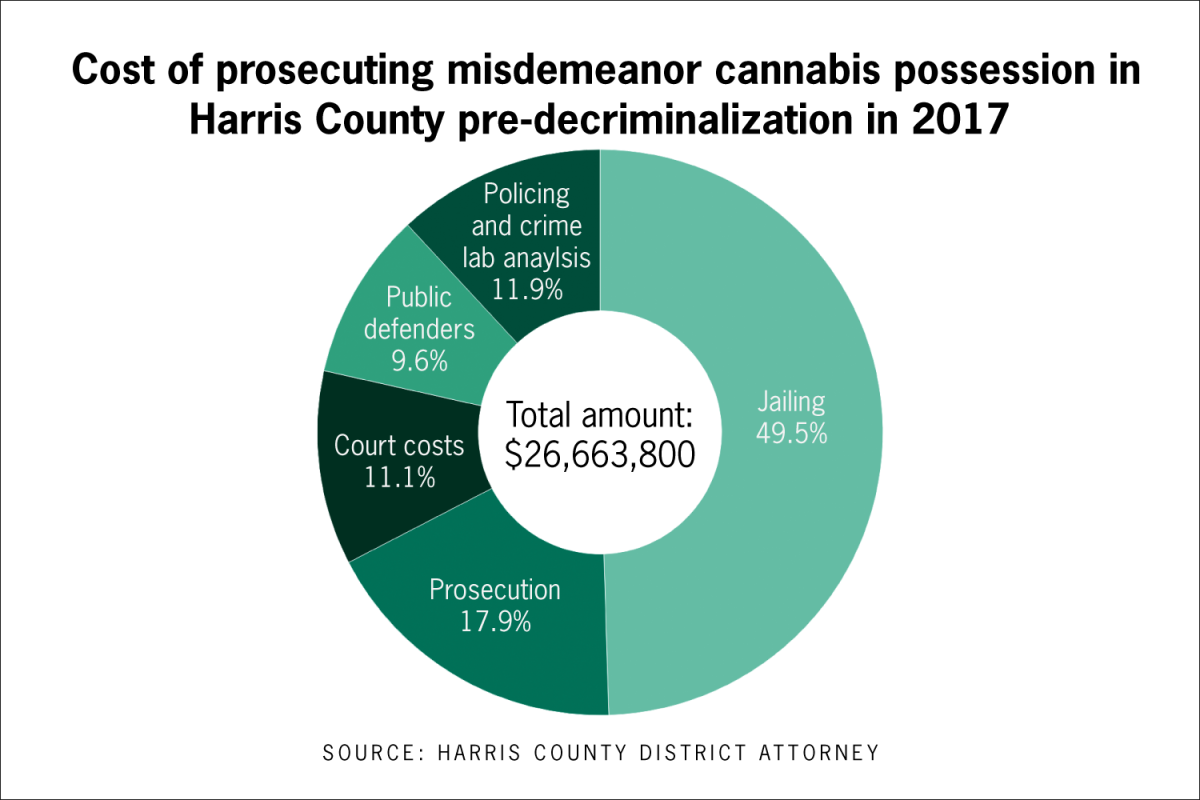Texas Attorney General Ken Paxton filed a lawsuit on Jan. 31 against the city of Austin for its lenient marijuana possession ordinance, arguing that it violates the Texas Local Government Code.
The lawsuit includes four other Texas cities for their marijuana possession ordinances, including nearby Elgin and San Marcos. Austin voters approved decriminalizing marijuana possession on May 7, 2022. The proposition passed with nearly 86% of the vote.
The city will not prosecute a person for possessing up to two ounces of marijuana, according to the National Organization for the Reform of Marijuana Laws. The ordinance only decriminalized possession of marijuana in Austin city limits. Possession of marijuana remains illegal under state and federal law.
“I will not stand idly by as cities run by pro-crime extremists deliberately violate Texas law and promote the use of illicit drugs that harm our communities,” Paxton said in a press release. “It’s quite simple: the legislature passes every law after a full debate on the issues, and we don’t allow cities the ability to create anarchy by picking and choosing the laws they enforce.”
The Austin ordinance also prevents the Austin Police Department from issuing citations for the lesser crime of possession of drug residue and drug paraphernalia instead of charging them with possession of marijuana. Currently, Austin Police will confiscate any marijuana it finds but will not prosecute anyone for possession unless it warrants a felony charge or the police chief designates it a “high-priority investigation,” according to the ordinance.
“We are aware of the lawsuit challenging Austin’s policies related to low-level possession of marijuana,” a city of Austin spokesperson said in an email. “The city will address the allegations raised in the lawsuit, including any APD or city policies at issue as part of the court process.”
Nearly 37% of UT students said they have used marijuana in their lifetime, with almost 21% saying they use it every week, according to UT’s Fall 2021 National College Health Assessment. Nia Brondo, a theater and dance sophomore, said she uses marijuana socially and to help with occasional headaches. She said marijuana contributes to Austin’s culture.
“(Prosecuting for possession is) not worth the fight anymore,” Brondo said. “It’s part of the culture. I think smoking (fits in) with the whole ‘Keep Austin Weird’ thing.”
Brondo said smoking marijuana has gained popularity in recent years. She also said decriminalization ordinances, like those in Austin, ease smokers’ minds when they carry marijuana or spark up.
“Because it’s decriminalized, I’m much less afraid to smoke,” Brondo said. “I would feel safer carrying alcohol around just because it’s legal in some form. I think everybody (in Austin) feels safer to smoke knowing that they won’t go to prison.”
Brondo said decriminalization efforts in Texas cities also help save taxpayer money. The ACLU estimates that government spending related to marijuana prosecutions would decrease nationwide by $7.7 billion if the federal government legalized marijuana.
Brondo said it’s important to understand the laws surrounding cannabis if one decides to use it.
“Most people who smoke weed are not bad people,” Brondo said. “They’re functioning members of society that are contributing to the community. For them to … get something on their record for this is really unfortunate. It’s important with any laws to know how your city and your state are interacting with you.”














